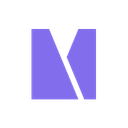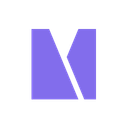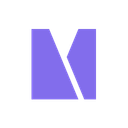Monograph vs Wrike (2025 Comparison)

Monograph is a project management tool tailored for architects, offering intuitive features and strong budget management. It's ideal for firms seeking specialized solutions.
- Tailored for architects
- Intuitive interface
- Strong budget management
- Limited integrations
- Niche market focus
Free plan?
NoStarting price
$25 per month
Wrike provides versatile project management features, scalable for all teams. Its advanced collaboration tools make it a top choice for businesses seeking comprehensive solutions.
- Versatile features
- Scalable for all teams
- Advanced collaboration tools
- Complex for beginners
- Higher learning curve
Free plan?
YesStarting price
$10 per month per userWhat is Monograph?
Monograph is a project management tool specifically designed for architects. It helps streamline project workflows, manage budgets, and track time efficiently. With its intuitive interface, Monograph allows architects to focus more on design and less on administrative tasks. It offers features like Gantt charts, budget tracking, and team collaboration, making it an essential tool for architectural firms looking to enhance productivity and project delivery.
What is Wrike?
Wrike is a versatile project management software that caters to teams of all sizes across various industries. It offers robust features like task management, time tracking, and collaboration tools, helping teams stay organized and efficient. Wrike's customizable dashboards and real-time updates ensure that everyone is on the same page, making it an ideal choice for businesses looking to improve project visibility and team collaboration.
Pros and Cons of Monograph vs Wrike

Pros & Cons of Monograph
- Monograph is specifically designed for architects, offering features that cater to their unique project management needs. This specialization ensures that users have access to tools that enhance their workflow and productivity.
- The user-friendly interface of Monograph makes it easy for architects to navigate and manage their projects efficiently. This ease of use reduces the learning curve and allows teams to focus on their core tasks.
- Monograph provides robust budget management tools that help architects keep their projects within financial constraints. This feature is essential for firms looking to maintain profitability and manage resources effectively.
- Monograph offers fewer integrations compared to other project management tools, which may limit its compatibility with certain software. This can be a drawback for firms that rely on a diverse set of tools.
- Monograph's focus on the architectural industry may limit its appeal to other sectors. While this specialization is beneficial for architects, it may not be suitable for businesses outside this niche.

Pros & Cons of Wrike
- Wrike offers a wide range of features that cater to various industries, making it a versatile choice for project management. Its adaptability ensures that teams can customize the tool to fit their specific needs.
- Wrike is designed to scale with businesses of all sizes, providing the flexibility needed to grow and adapt. This scalability makes it an ideal choice for companies looking to expand their operations.
- Wrike's collaboration tools facilitate seamless communication and teamwork, enhancing productivity and project outcomes. These advanced features support real-time collaboration, ensuring that teams stay connected and informed.
- Wrike's extensive features can be overwhelming for new users, leading to a steeper learning curve. This complexity may require additional training and support for teams to fully leverage the tool's capabilities.
- The comprehensive nature of Wrike's features can result in a higher learning curve for users. This may necessitate a longer onboarding process and additional resources to ensure effective adoption.
Monograph vs Wrike: At A Glance
Value to Price
Monograph offers a competitive pricing model that aligns well with its features, making it a cost-effective choice for architectural firms. Wrike, on the other hand, provides a broader range of features, justifying its slightly higher price point. If you're looking for a tool with extensive capabilities, Wrike might be the better option.
Ease of Use
Monograph is designed with architects in mind, offering an intuitive interface that simplifies project management tasks. Wrike, while feature-rich, maintains a user-friendly interface that caters to a wider audience. If ease of use is a priority, Wrike's versatility might appeal to you more.
Functionality
Monograph focuses on features essential for architects, such as budget tracking and Gantt charts. Wrike offers a more comprehensive suite of tools, including advanced task management and collaboration features. For those needing extensive functionality, Wrike stands out as the superior choice.
Scalability
Monograph is ideal for small to medium-sized architectural firms, offering scalability within this niche. Wrike, however, is designed to scale with businesses of all sizes, making it a more versatile option for growing teams. If scalability is crucial, Wrike is the better choice.
Integrations
Monograph integrates well with tools commonly used in architecture, enhancing its utility for this industry. Wrike offers a wider range of integrations, supporting various business tools and applications. If integration flexibility is important, Wrike provides more options.
Customer Support
Monograph provides reliable customer support tailored to the needs of architects. Wrike offers robust support options, including live chat and phone support, catering to a broader audience. If comprehensive support is a priority, Wrike's offerings are more extensive.
Security
Monograph ensures data security with industry-standard protocols, suitable for architectural firms. Wrike, with its enterprise-grade security features, offers a higher level of protection, making it a preferred choice for businesses with stringent security requirements.
Overall Rating
Monograph is a specialized tool for architects, offering essential features at a competitive price. Wrike, with its extensive functionality and scalability, appeals to a broader audience. If you're seeking a versatile project management solution, Wrike is the better option.
Monograph vs Wrike: A Detailed Breakdown of Key Features
Time Tracking
Monograph offers a robust time tracking feature that is particularly beneficial for architects who need to manage billable hours effectively. Wrike, however, provides a more comprehensive time tracking system that integrates seamlessly with other project management features, making it ideal for teams that require detailed time management. If you need a more integrated time tracking solution, Wrike is the better choice.
Budget Management
Monograph excels in budget management, offering tools that help architects keep projects within financial constraints. Wrike also provides budget management features, but they are more generalized, catering to a wider range of industries. If precise budget management is crucial, Monograph might be more suitable for your needs.
Collaboration Tools
Monograph includes collaboration tools that facilitate communication within architectural teams. Wrike, on the other hand, offers advanced collaboration features that support real-time communication and file sharing across diverse teams. If collaboration is a key focus, Wrike's tools are more comprehensive and versatile.
Customizable Dashboards
Monograph provides customizable dashboards that allow architects to tailor their project views. Wrike offers more flexibility in dashboard customization, enabling users to create personalized views that suit their workflow. If you need highly customizable dashboards, Wrike is the superior option.
Gantt Charts
Monograph's Gantt charts are designed to meet the specific needs of architectural projects, providing clear visual timelines. Wrike also offers Gantt charts, but with more advanced features that cater to complex project management needs. If you require advanced Gantt chart capabilities, Wrike is the better choice.
Real-time Updates
Monograph provides real-time updates that keep architectural teams informed of project progress. Wrike enhances this feature with real-time notifications and updates across all devices, ensuring that teams stay connected. If staying updated in real-time is essential, Wrike offers a more comprehensive solution.
Pricing Comparison of Monograph and Wrike
To assist you in making an informed choice, we’ve outlined the pricing plans and essential features of Monograph and Wrike. This comparison will highlight the best option for managing your projects efficiently.

Monograph Pricing Plans
- Error-free timesheets to manage projects efficiently.
- Basic project accounting to optimize firm finances.
- Access to unlimited projects and reports.
- Seamless integration with existing workflows.
- Advanced forecasting and staffing capabilities.
- Comprehensive design-centric reports for decision making.
- Free onboarding, support, and training.
- Enhanced project accounting for better financial management.

Wrike Pricing Plans
- Manage projects and tasks efficiently with intuitive tools.
- Visualize tasks using board view for better organization.
- Table view for detailed task management and tracking.
- Active task limitations apply to manage workload effectively.
- Organize projects with folders structure and nested projects.
- Unlimited projects, tasks, and subtasks for comprehensive management.
- Shared space and dashboard for collaborative work.
- Automations with 50 actions per user per month to streamline tasks.
- Create project blueprints for standardized project management.
- Unlimited request forms and shared spaces for seamless collaboration.
- Advanced resource and capacity planning for efficient workload management.
- Automations with 200 actions per user per month for enhanced productivity.
- Custom access roles and customizable user types for tailored access.
- Admin permissions and user audit reports for comprehensive oversight.
- Automations with 1000 actions per user per month for extensive automation.
- 10 GB storage per user for ample data storage.
- Advanced reporting and BI for in-depth data analysis.
- Advanced Resource and Capacity Planning for optimal resource allocation.
- Team utilization and performance dashboard for performance tracking.
- Automations with 1500 actions per user per month for maximum efficiency.
Our Rating Methodology
We thoroughly evaluate each project management tool, focusing on key aspects like functionality, scalability, and ease of use. By analyzing user feedback and conducting in-depth testing, we ensure our recommendations are reliable. Each factor is weighted to provide an accurate final rating, helping you make informed decisions.
Monograph or Wrike: Which One Matches Your Business Needs?
Choose Monograph If You Need ...
- Tailored for architects
If you are an architect or part of an architectural firm, Monograph is designed specifically for your needs. Its features cater to the unique requirements of architectural projects, making it an ideal choice for professionals in this field.
- Strong budget management
If budget management is a priority for your projects, Monograph offers robust tools to help you stay within financial constraints. Its specialized features ensure that you can effectively manage resources and maintain profitability.
Choose Wrike If You Need ...
- Versatile features
If you need a project management tool that caters to various industries, Wrike's versatile features make it a suitable choice. Its adaptability ensures that you can customize the tool to fit your specific needs.
- Scalable for all teams
If your business is growing and you need a tool that can scale with you, Wrike offers the flexibility to support expanding teams. Its scalability makes it an ideal choice for companies planning for future growth.
Frequently Asked Questions
 What industries benefit most from Monograph?
What industries benefit most from Monograph?
 How does Wrike support team collaboration?
How does Wrike support team collaboration?
 Can Monograph handle large-scale projects?
Can Monograph handle large-scale projects?
 What makes Wrike a versatile project management tool?
What makes Wrike a versatile project management tool?
 How does Monograph ensure data security?
How does Monograph ensure data security?
 What are the key features of Wrike's time tracking?
What are the key features of Wrike's time tracking?

Martin Lunendonk
Martin Lunendonk is a senior tech writer specializing in website builders, web hosting, and ecommerce platforms. With a background in finance, accounting, and philosophy, he has founded multiple tech startups and worked in medium to large tech companies and investment banking, bringing deep expertise and reliable insights to his software reviews.



